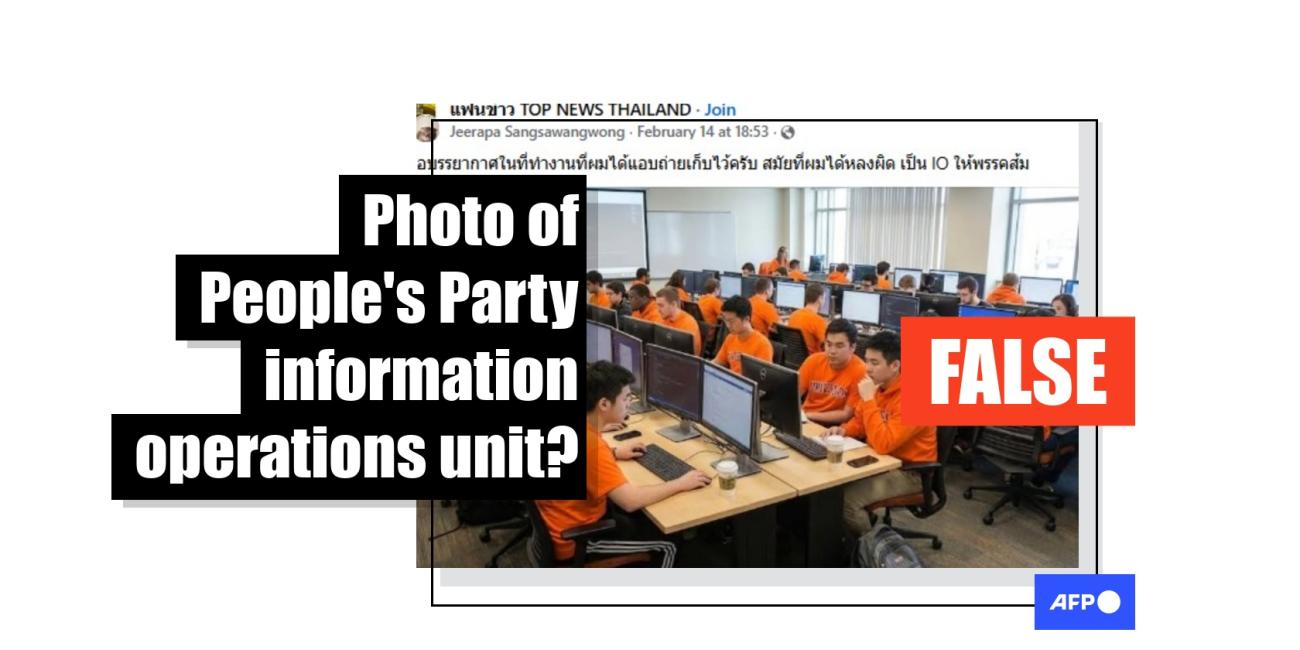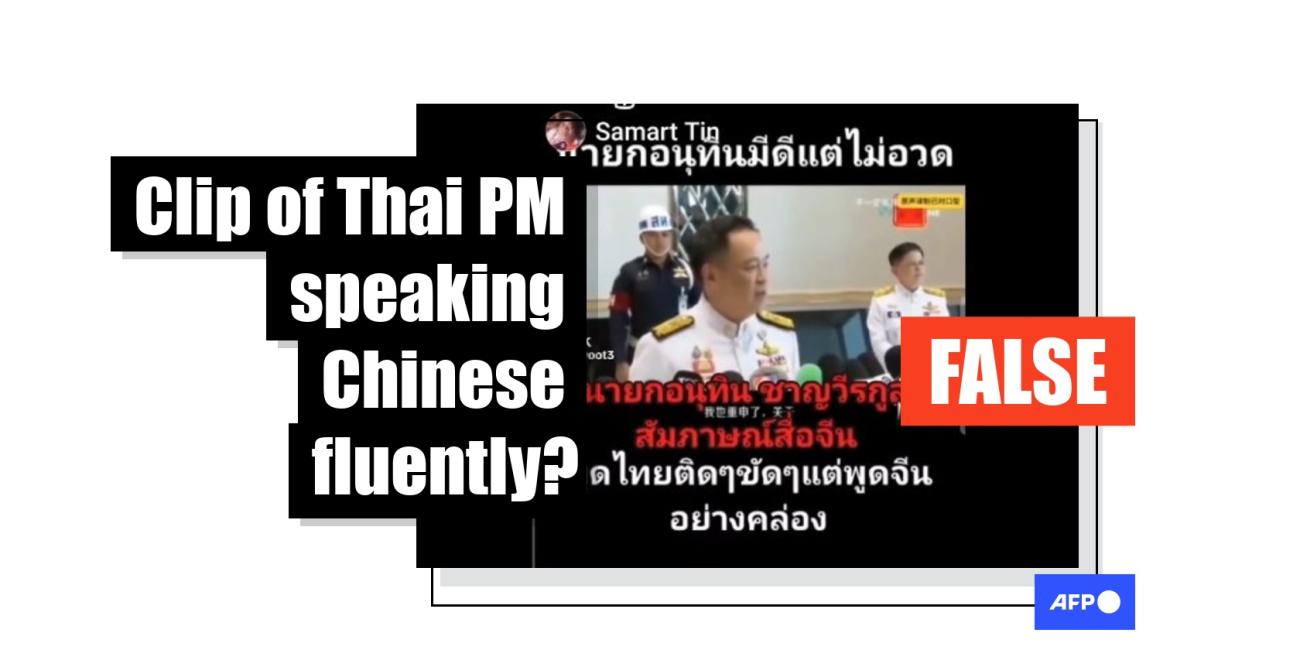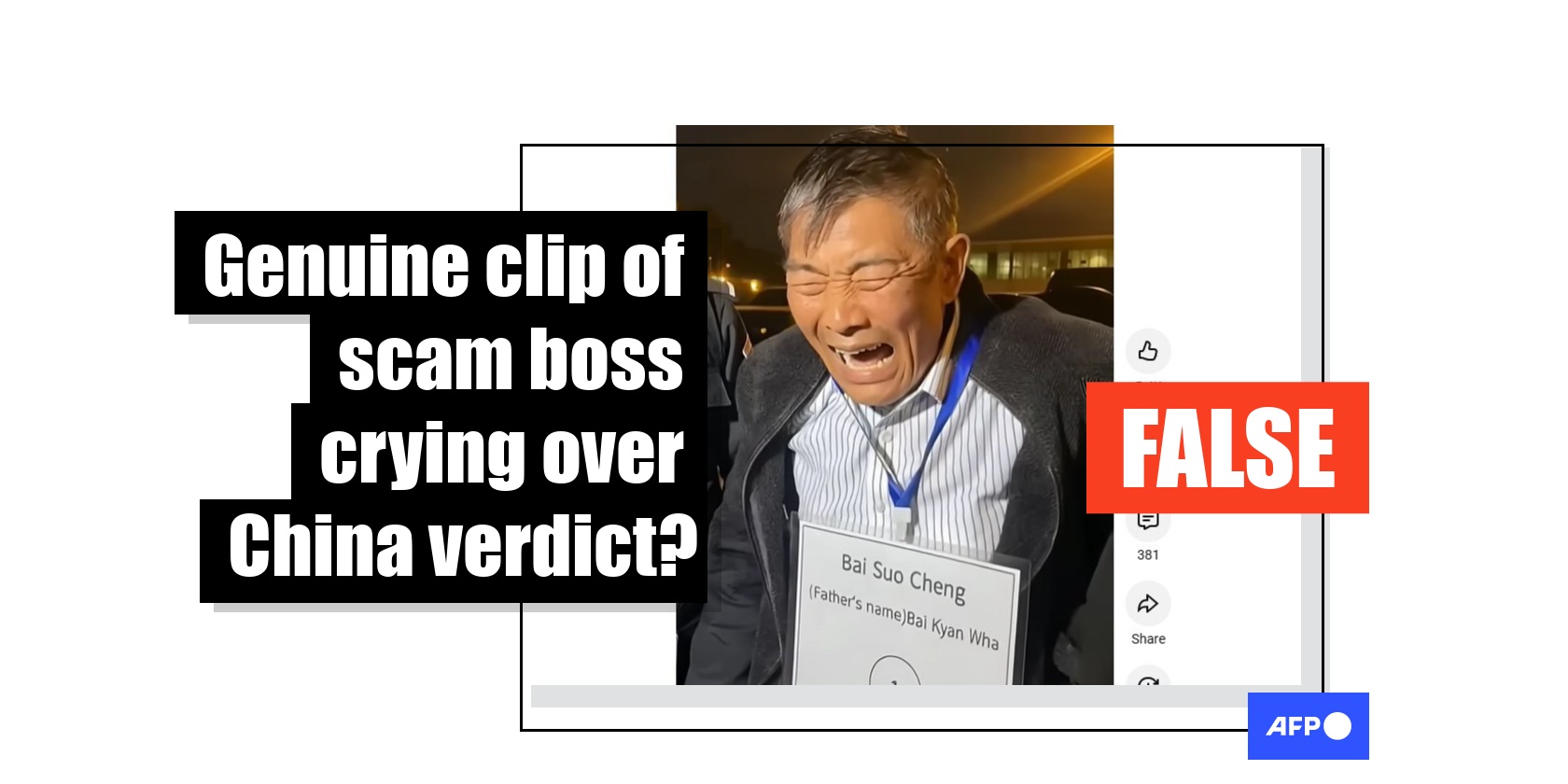
AI visuals of Myanmar-linked gang reacting to death sentence spread online
- Published on November 12, 2025 at 09:23
- 4 min read
- By Sammy HEUNG, AFP Hong Kong
China has sentenced to death several members of criminal gangs that established deadly scam centres in Myanmar, which are blamed for trafficking foreigners and forcing them to swindle people online. But widely shared videos of the men tearfully reacting to the verdict are inauthentic and contain visual errors that indicate they were made with AI.
"Bai Suo Cheng, the head of one of the four major fraud syndicates in northern Myanmar, was sentenced to death and wept bitterly!" reads the simplified Chinese caption of a YouTube video on October 5, 2025.
The clip depicts a man crying and wiping his face while an officer next to him pats his shoulder.
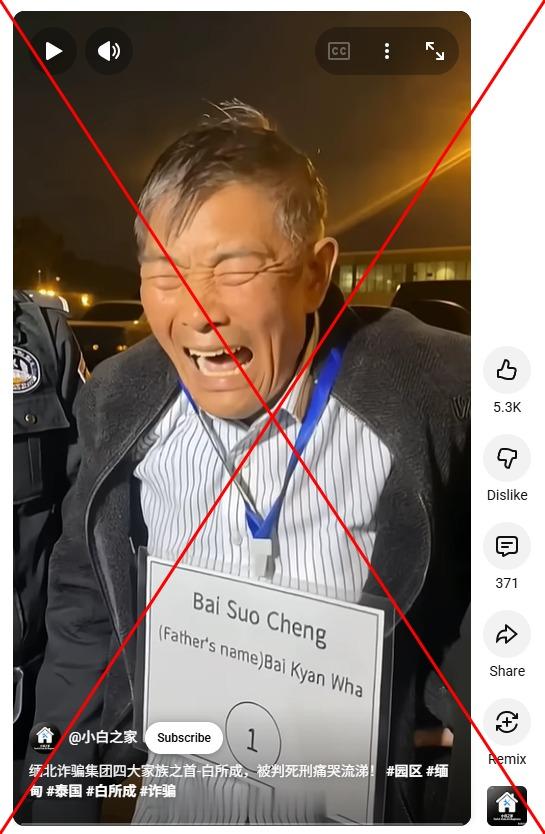
The YouTube account also shared visuals of other weeping men wearing name cards that say Bai Ying Cang, Liu Zheng Mao and Wei Huai Ren.
Similar claims spread on TikTok, X, and Baidu, and circulated in posts written in Thai and Vietnamese.
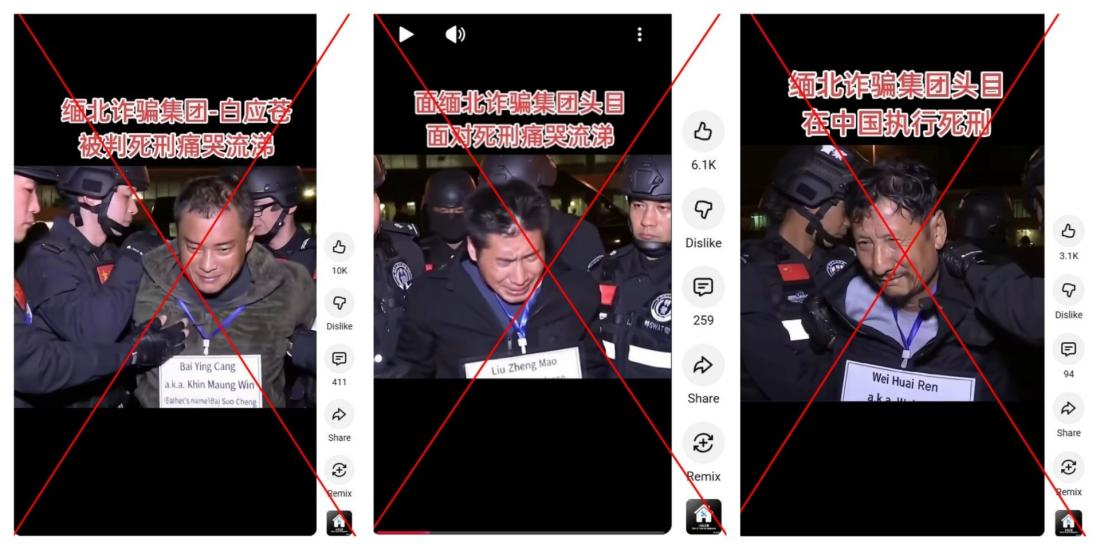
Bai Suo Cheng, Bai Ying Cang, Liu Zheng Mao and Wei Huai Ren were among the six men whom Myanmar handed over to China in January, according to the Chinese Ministry of Public Security (archived link).
They are accused of leading fraud operations in the border region of Kokang.
Scam compounds have flourished in Myanmar's borderlands, staffed by foreigners -- many of them Chinese -- who often say they were trafficked and forced to swindle people online, part of a multibillion-dollar illicit industry (archived link).
Beijing has stepped up cooperation with Southeast Asian nations in recent months to crack down on the compounds, and thousands of people have been repatriated to China.
Bai Suo Cheng and Bai Ying Cang were sentenced to death by a court in the southern Chinese city of Shenzhen, the state-run Global Times reported on November 4 (archived link).
Chinese authorities said in October that cases involving Liu and Wei have entered the prosecution stage (archived here and here).
AI-generated
Reverse image searches on Google found the circulating clips were generated using photos and footage of the men filmed on January 30, 2024 when they were handed over by Myanmar to Chinese police (archived here and here).
The visuals also contain several errors that are artefacts of AI.
For example, compared to the original photo of Bai Suo Cheng, the Chinese flag and the special police badge on an officer's uniform are missing in the fabricated clip (archived link). Several patches also appear on the officer's uniform and helmet. The texture of Bai's sleeve is different from the rest of his jacket.
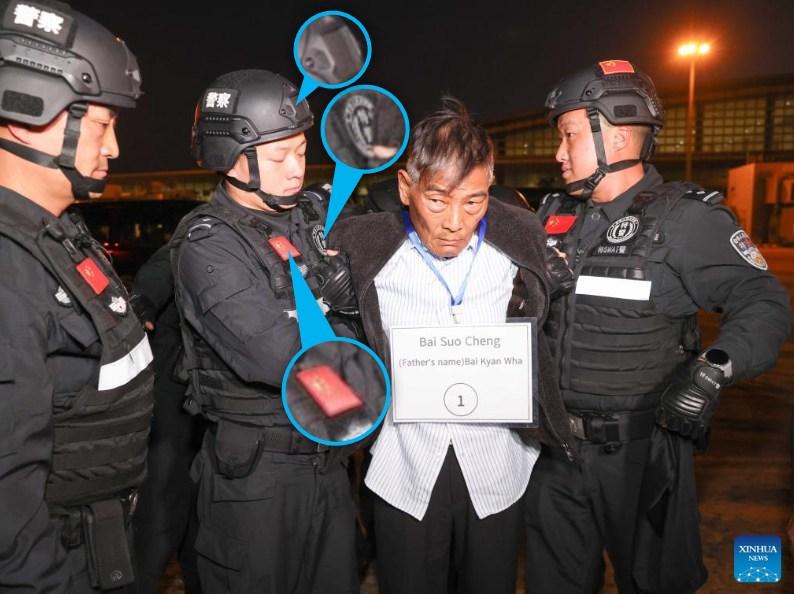
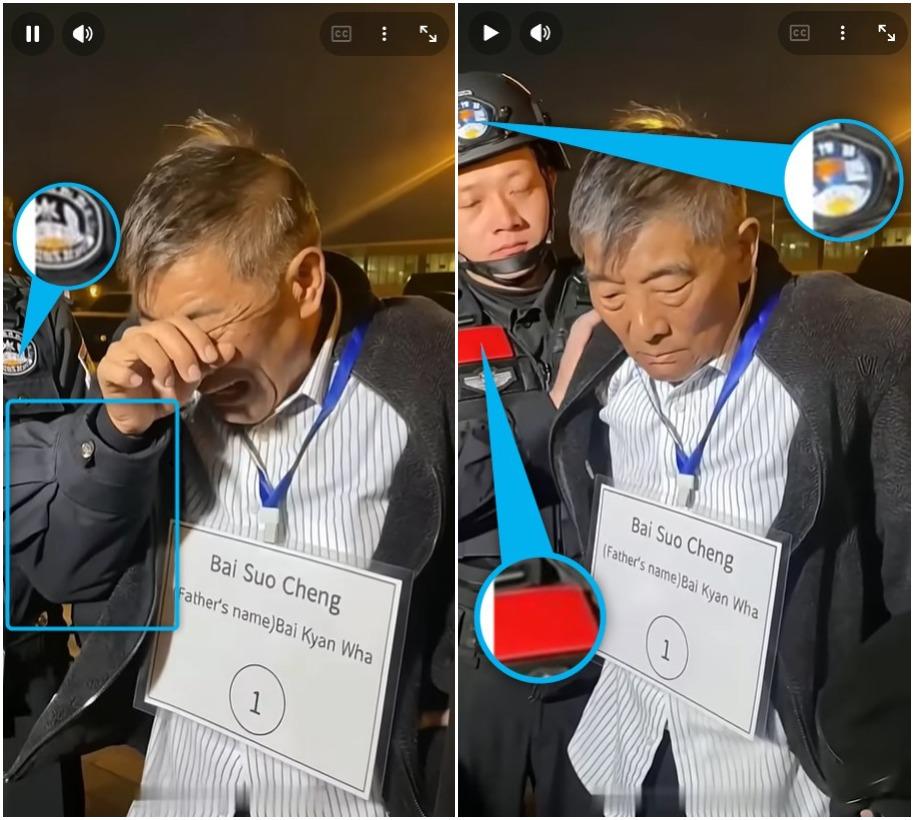
Meanwhile, the video of Bai Ying Cang contains distorted Chinese flag badges on the officers' uniforms. The word "Father's" on the card Bai is wearing is misspelled as "Eathec's". There is an unknown logo on the officers' helmets.
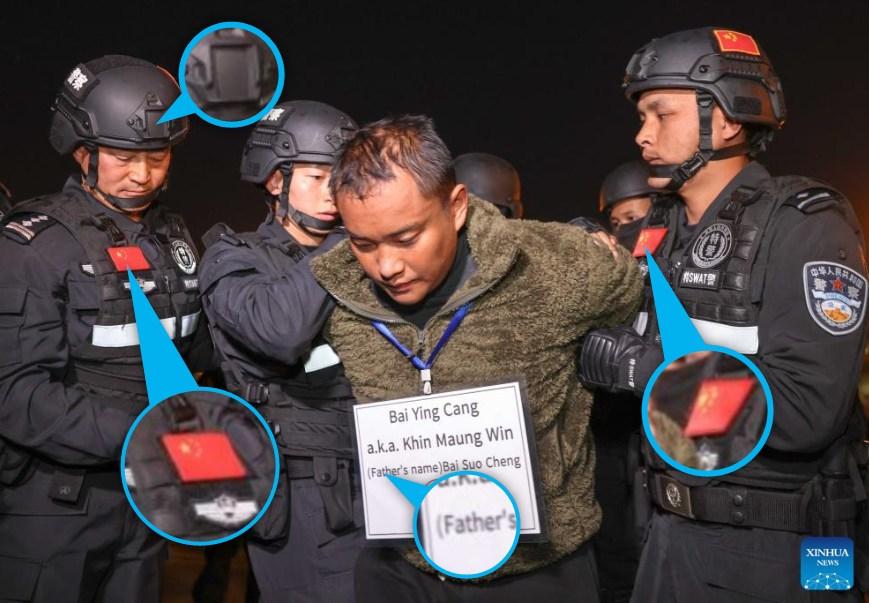
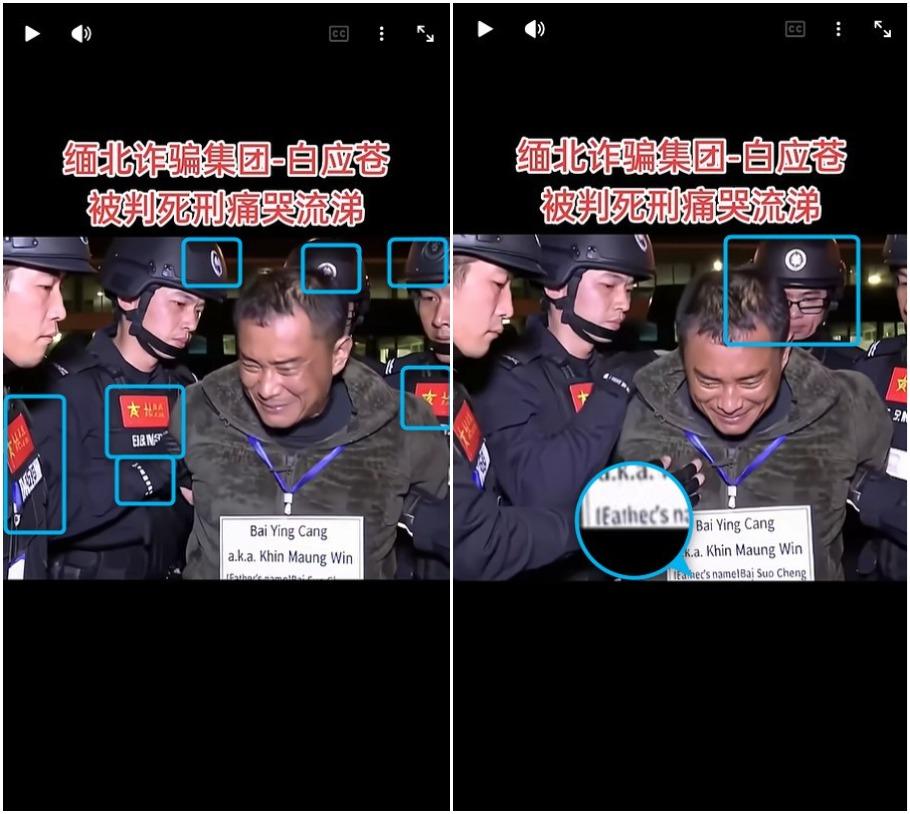
The Chinese characters for "special police" and the Chinese flag on the officers' uniforms are blurred in the clip where Liu Zheng Mao is shown to be crying. The English words on Liu's name card are also nonsensical.
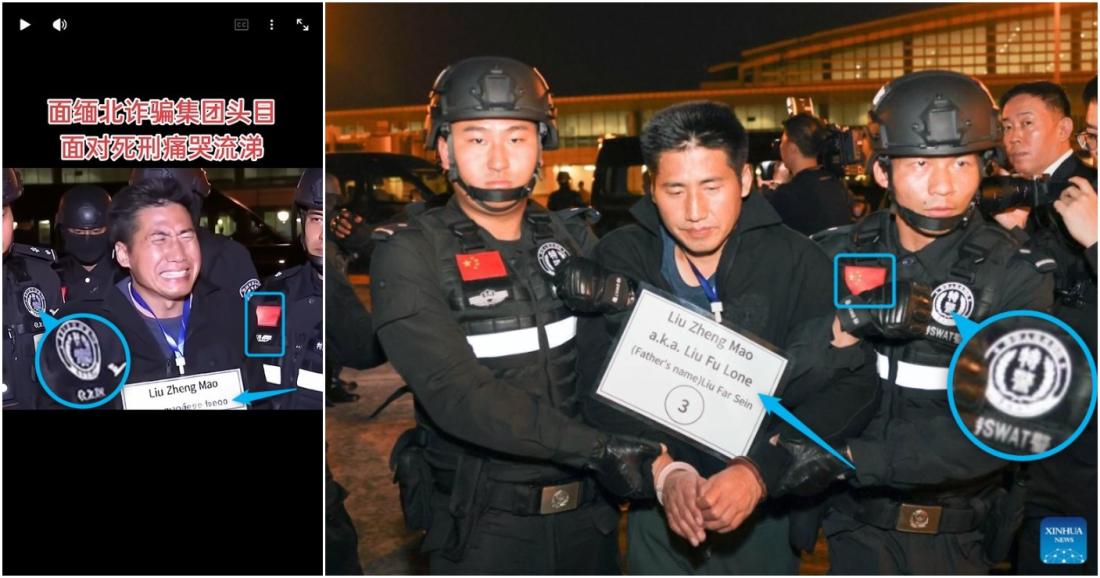
Finally, the special police badge is replaced with an unknown badge in the clip of Wei Huai Ren. The stars on the Chinese flag are blurred and the logo underneath is distorted. There is also an unknown badge on the officer's helmet.
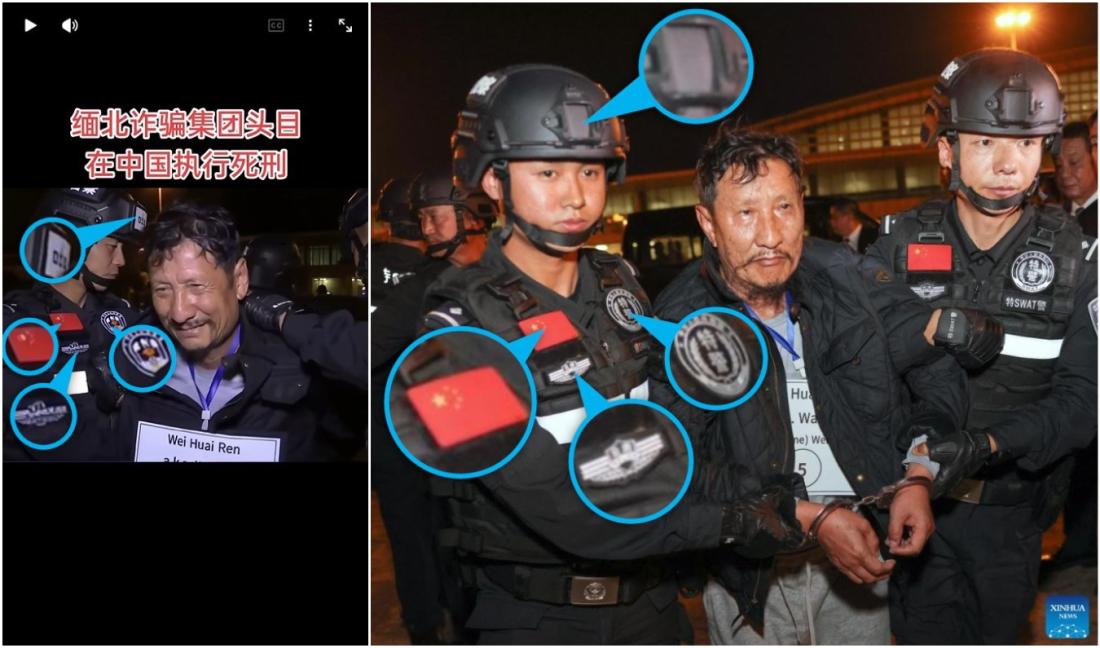
AFP has previously debunked false claims surrounding scam centres.
Copyright © AFP 2017-2026. Any commercial use of this content requires a subscription. Click here to find out more.
Is there content that you would like AFP to fact-check? Get in touch.
Contact us

